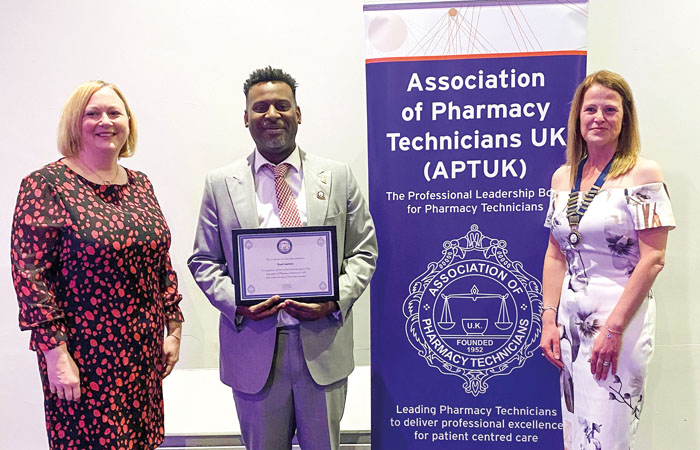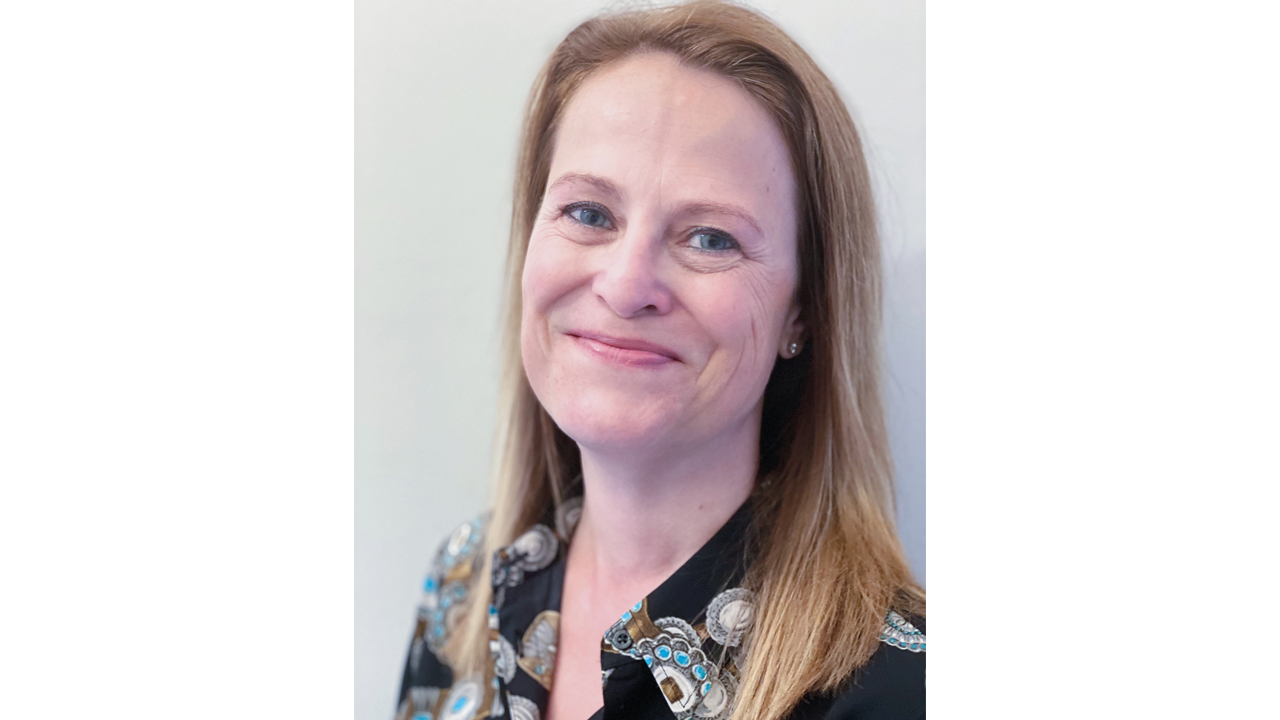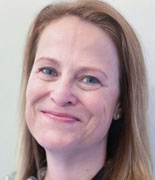In Opinion
Follow this topic
Bookmark
Record learning outcomes
This year, the Association of Pharmacy Technicians UK (APTUK) welcomed a new president – Claire Steele, head of pharmacy medicines supply and quality at health board NHS Fife
Former president and senior professional advisor pharmacy technician practice at NHS England, Liz Fidler, handed the baton over in March. Until now, Claire has worked within APTUK as the professional lead for Scotland. She brings with her a wealth of experience, expertise and passion for pharmacy, with hopes to continue to drive the organisation forwards.
Strength to strength
“I’m a bit of a magpie,” laughs Claire when asked about her career. And certainly, she has work hard to gain a complex rich mix of experience for herself.
Claire’s career began at the tender age of 18 when she got her first role in a community pharmacy, starting as a counter assistant. “I think I was the first cohort to do the first NVQ Level 3 in pharmacy services to train to be a pharmacy technician,” she explains. “I had such a wonderful employer, I had a wonderful pharmacist that I worked with and pharmacy technicians that really supported me through. I think I decided that pharmacy was a career for me, I really just wanted to learn more.”
After five years in community pharmacy, Claire found herself at a crossroads. Her two options to move on being a job as a hospital technician or a banking post. “I decided to take the hospital pharmacy job, I knew that was where my heart lied,” she explains. “When it came to the crunch, I didn’t want to leave pharmacy.”
Since then, Claire has held a number of positions. “I’ve had quite a varied career that moved around a lot,” she laughs. She has lectured at Edinburgh College and has experience in R&D and purchasing as the person responsible for the MHRA wholesale dealers license at the PDC in Glasgow. She has even worked at the biggest health board in Scotland – NHS Greater Glasgow and Clyde. Claire has completed an extensive amount of training, some of which includes completing her formal accuracy checking technician qualification and the Institute of Safety and Healthcare (ISOH) safety management course.
So how did she end up head of pharmacy medicines supply and quality at health board NHS Fife? “I missed the buzz of hospital, working in that pharmacy team. Yes it’s full on, it’s busy, it’s stressful, but at the same time it is also quite exhilarating and you’re working with your peers and I missed that when I was away.”
Now, Claire’s remit is broad, covering all medicine supply within the health board area. “I’m a member of the senior leadership team and I’m also the professional lead for all pharmacy technicians within the board as well,” she adds.
“My advice to I suppose anybody, and particularly pharmacy technicians, is to grab every opportunity that’s afforded to you and don’t be frightened to move because I think that has really helped me get to where I am today. In most cases the jobs that I’ve done were previously undertaken by pharmacists. That can be quite intimidating going in as a pharmacy technician but I think it’s a good thing because you’ve got an opportunity to make that job your own. I would love to see pharmacy technicians be a little more bold in that.”
Steele for president
Claire first became a member of APTUK some years back. “I found it quite helpful, particularly when I was working in community pharmacy because there is so much available in terms of CPD and learning all of which I found really useful when I was doing my pharmacy technician training,” she says.
However, when she moved to Scotland, she cancelled her membership temporarily before coming back to the organisation sometime later, as her perceptions changed. “I initially viewed it as a quite an English centric organisation. I re-joined a few years back now and the reason I did that was because I didn’t feel that I could be a professional leader for pharmacy technicians if I wasn’t a member of my professional leadership body,” she explains. “I think once I started to learn a bit more about APTUK and I started talking to members of the executive committee, I realised that my perceptions previously were really wrong.”
After dipping her toe in, Claire’s multifaceted role as the professional lead for Scotland alongside working with the National Pharmacy Technician Group Scotland lead her down the path to presidency. “I had this dual role and I actually thought that was wonderful because it was starting to increase the APTUK influence and membership in Scotland,” she says. “I thought this was an opportunity for me to kind of leave a legacy of positive change and that impact on the profession. It was almost the natural next step for me.”
“I want membership to grow across all sectors of pharmacy”
A sustainable future
Now a few months into her presidency, Claire is focusing on inclusion. “I want membership to grow across all sectors of pharmacy and particularly in the underrepresented sectors such as community pharmacy,” she explains. “Obviously I practice in Scotland and so I’m keen to make sure that we are being truly inclusive there too. I would like to end my presidential term with a really strong professional leadership body for pharmacy technicians that is really representative of the profession.”
To protect the sustainability of the organisation in the future she hopes to be able to advance the voluntary executive committee roles. “The vast majority of our executives are volunteers, they’re unpaid. Money is not the driver for any of us involved in APTUK, but it is quite difficult to juggle that with your employment and family commitments,” says Claire. “When we do advertise for a post, it can be quite difficult for us to recruit. I would probably like to leave knowing that we are on a more sustainable foot in that we are able to offer, even on an honorary basis, payment for pharmacy technicians to be involved.”

Belonging matters
A sustainable future also includes the continuation of membership advancement and Claire believes there are many, many benefits to joining APTUK. “From a personal point of view, as a member not as president, knowing that my leadership body is championing my profession and really trying to change other people’s perceptions of it is something that I think is huge and I’m really proud that’s where my £60 a year goes to,” she explains. “I do truly believe that it has had a positive impact on my career because I think being a member demonstrates a commitment to the profession. A desire to excel in your career as a pharmacy technician. For me as an employer, it’s certainly something I look for when I’m recruiting pharmacy technicians to my service. It shows that kind of commitment to professionalism.”
Alongside these benefits, Claire praises how the organisation establishes a support network. “During the pandemic, in the absolute worst days where I was working a lot of hours and was completely exhausted, I did get support from my team, but I really looked to my peers within APTUK and NPTGS. It was good to talk about the pressures and I just couldn’t put a price on that. It really did help me get through that. It’s just knowing that you’re not alone.”
“I would love to see pharmacy technicians be a little more bold”
Focus on community
Although the membership numbers at APTUK continue to grow, Claire would like to do more to encourage a higher uptake in community pharmacy technicians. “I don’t know whether there is a perception that we don’t place as much emphasis on community pharmacy. In fact, nothing could be further from the truth given all our work on supervision and campaigning changes to the PGDs – which is predominately going to affect community pharmacy,” she adds.
Claire wonders if a lack of visibility of pharmacy technician professional leadership in the community pharmacy sector contributes to this. “What I would say to community pharmacy technicians is you might not have that in your workplace, but you can get it through APTUK,” she enthuses. “That peer professional support. I suppose the other thing I would say is that we are not an elitist organisation, we’re just normal pharmacy technicians. It’s only really by giving something a go that you realise the benefits so that would be my plea.”
Looking to the future
In April, the Training Matters (TM) team attended the annual APTUK Celebratory Conference, which celebrated its 70th anniversary this year. When asked where she would like to see the organisation in another 70 years, Claire said: “If in theory I was still practicing in 70 years’ time, I would like to be a director of pharmacy or I would quite like to be an independent prescriber. I’d like to be managing my own caseload of patients in women’s health – because that’s a personal interest of mine.” She furthered this with: “I think in terms of APTUK, every pharmacy technician would be a member and we would be providing professional leadership at all levels of practice, supported by robust education and career pathways. We wouldn’t be having to focus a lot of our time convincing others of what pharmacy technicians can do because we will have been established as independent and autonomous practitioners.
“I appreciate that might be a bit scary”, she laughs, “but we’ve seen changes for other healthcare professionals. You think about our nursing colleagues, for example, they have been on such as journey in the last 20-30 years. I don’t see why pharmacy technicians can’t do that”.
Find out more via the APTUK website.


